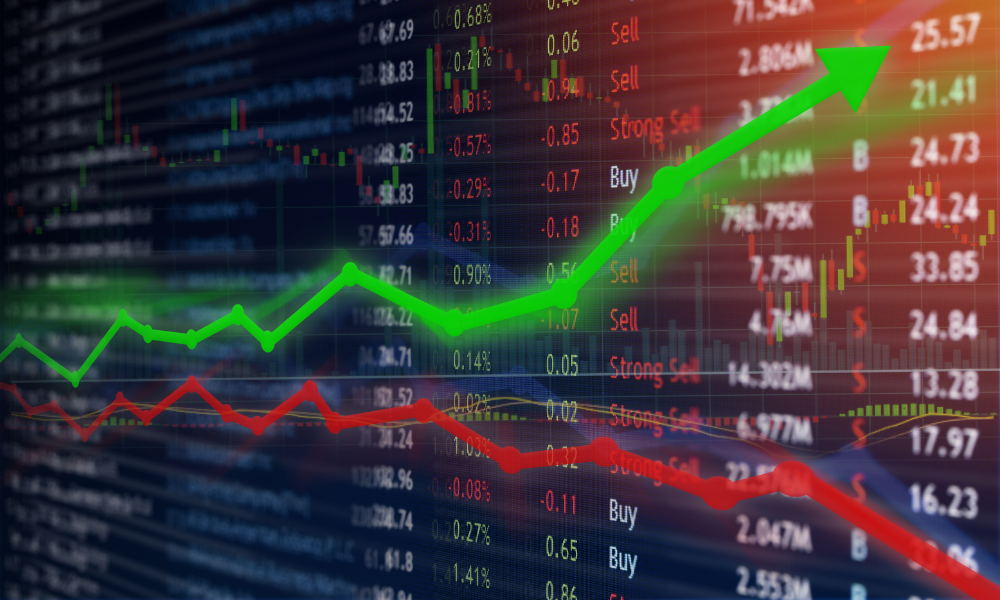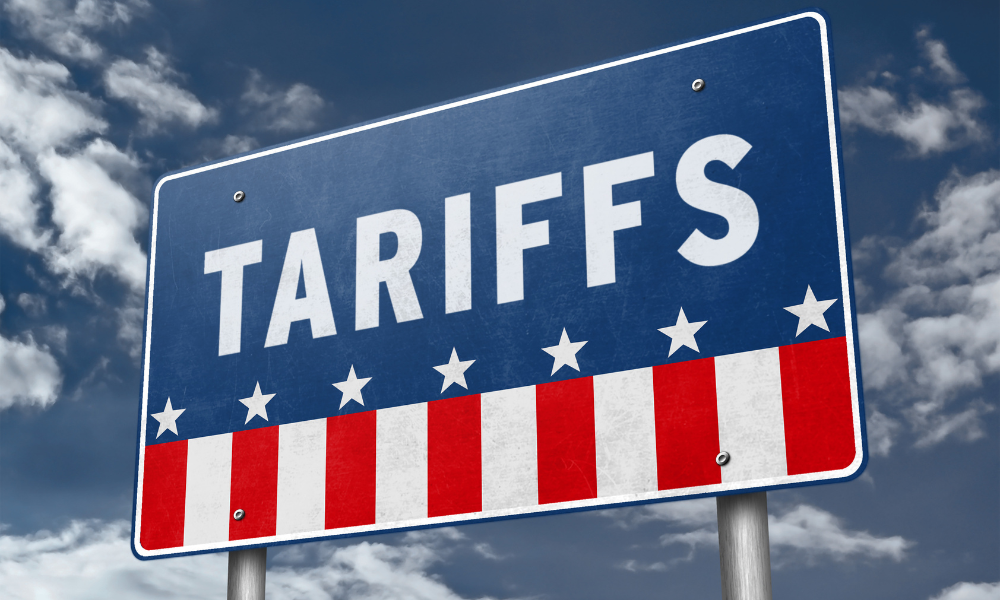US stocks rose while Wall Street awaits full details of Trump's reciprocal tariffs on imports

On Wednesday, US stocks closed higher in a volatile session, as markets turned their focus to the upcoming announcement of US President Donald Trump’s reciprocal tariffs, according to CNBC.
The S&P 500 rose 0.67 percent to 5,670.97. The Nasdaq Composite increased by 0.87 percent, ending at 17,601.05.
The Dow Jones Industrial Average added 235.36 points, or 0.56 percent, and finished at 42,225.32. The S&P 500 had earlier fallen more than 1 percent before reversing gains.
Tesla shares rose 5.3 percent after reports indicated that Trump had informed his cabinet that Elon Musk plans to step back from his advisory role in the coming months.
The White House said Tuesday that Trump’s tariffs “will be effective immediately” after they are announced at a Rose Garden event scheduled for Wednesday. The measures are expected to “start with all countries.”
The administration had not finalized the tariff levels as of Tuesday and continued to consider several options, according to Bloomberg News, which cited people familiar with the matter.
The lack of details has raised concerns about the sectors that could be affected and the potential impact on the US economy.
Jon Brager, portfolio manager at Palmer Square Capital Management, stated: “We expect to learn a lot more today from the president, but we also think the market will continue to remain on edge until we know about retaliation and/or escalatory measures [or] rhetoric from the major trading counterparts.”
Representative Kevin Hern, R-Okla., told CNBC’s Emily Wilkins that US Treasury Secretary Scott Bessent described the tariffs as a “cap,” meaning the announced levels would be the maximum.
Other countries would have the opportunity to take actions to reduce their specific tariff burdens.
Investors expect the final tariff levels to be lower than some proposals previously discussed.
The Washington Post reported Monday that the White House had been considering a 20 percent tariff on most imports but noted that multiple options remain under consideration.
“Markets can deal with a lot of bad news — they sell off and then eventually find some silver lining and begin a recovery (or get the Fed to help along with easing),” said Jan Szilagyi, CEO and co-founder of Reflexivity.
“However, in the current environment the complexity of possible scenarios would be tough to analyze even if you know definitively that one of them will happen — we don't.”
Market volatility has increased amid ongoing uncertainty about the tariffs. The S&P 500 has fallen in five of the last six weeks. Some investors believe the recent downturn may have gone too far.



